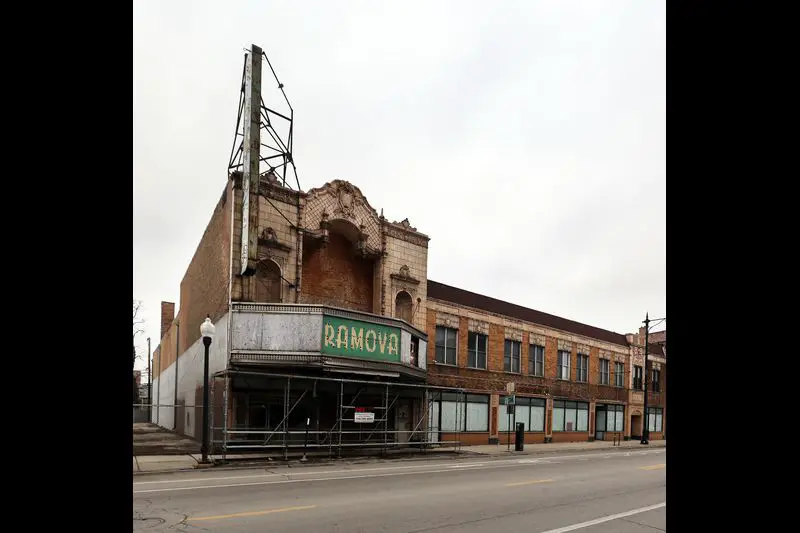Renovations will soon commence on the vacant Ramova Theater which was built about 9 decades ago on Chicago’s South Side. This theatre restoration project was originally meant to break ground in early 2020, but the plans ended up delayed by a year due the COVID pandemic. According to McHugh Construction, the general contractors for the project, the renovations are expected to be finished by late 2022.
The Ramova Theater restoration project is to be executed through a public-private partnership of the city of Chicago and co-developers, Revival Chicago; also the historic preservation specialists, Baum Revision were later enlisted as co-developers, to ensure that the restoration project would be carried out according to the National Historical Landmark restoration guidelines.
Located at 3518-3520 S. Halsted St, this dilapidated Ramova Theater, which has been vacant since 1985 will be restored to boost the economic development on Chicago’s South Side. It will also feature a a brewery and restaurant, after completion.
Also ReadUS$75 million chocolate processing plant in Illinois begins to take shape
Tyler Nevius, one of the developers of the Ramova Theater restoration project said that the initial budget before the pandemic was $23 million, but due to the delay and disruptions affecting the operational costs, the budget will increase by a few million dollars.
The co-founder and managing principal of Baum Revision, Scott Goldman described the Ramova Theater restoration project,as a fun blend of art and science. Goldman explained that the National Park Service would ensure that certain prominent features and signature architectural details are restored. While the artistic aspect would focus on the best ways to celebrate the historic nature of the building and also accommodate the coding requirements, exhaust and infrastructure needs.
Andy Totten, the project executive of McHugh Construction also said, “The development will attract cultural enthusiasts near and far. We will lean on our extensive experience in historic renovations and skilled craftspeople to create a venue that will honor the past and boost the economic future of the South Side.”

